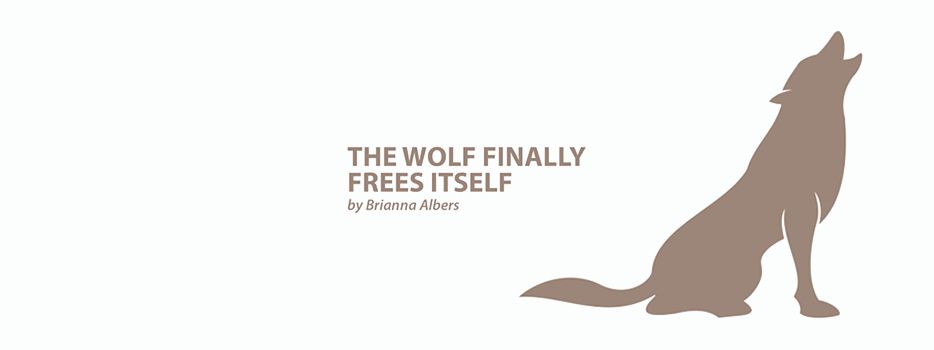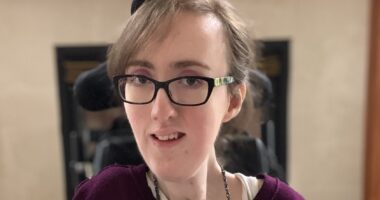Who I Am: My Journey From Internalized Ableism to Belonging

I didn’t have many friends growing up.
Part of it was the disability. Part of it was the mental illness — social anxiety, depression, and a dash of trauma for good measure. And part of it was the desire to not be seen hanging out with “people like me.”
I wish I could chalk it up to being young and dumb. I wish the internalized ableism that pervaded my childhood was benign — a byproduct of living in an able-bodied world with a disabled body. But I can’t. Not if I’m being honest. And that’s a hard pill to swallow.
Of course, I was young and dumb. But ableism is never benign. Ableism is insidious and toxic and, in many cases, lethal. Ableism is destructive to its core, and was all too happy to warp my childhood into one of loneliness and isolation.
It wasn’t that I hated people like me. It wasn’t that I wanted to do away with our conditions through eugenics or segregation. All I wanted was to put some distance between me and the disabled kids at my high school. I wasn’t “like them,” and I could prove it. See my grades? My sense of fashion? My taste in literature? I was normal! I could fit in, if only people gave me a chance!
My greatest fear was having someone tell me who I was. I wasted years of my life telling anyone who would listen that I wasn’t disabled, not really — they just needed to look past the wheelchair. They just needed to see the real me.
The irony was that in telling people who I wasn’t, my fear of who they thought I was eclipsed everything else.
It’s no wonder I spent my lunch periods in the library. No wonder my best friend — my only friend — was halfway across the world. No wonder I was sad and small and scared of everything.
Then I grew up. The world put me through the wringer, and I emerged with mental illness and a suitcase full of emotional baggage. Slowly, with all the timidity of someone who had been ruled by fear for far too long, I began to heal.
The healing took me to the very edge of myself. I discovered the power of reclamation — salvaging the parts of myself that had been dormant for years. It was, in many ways, an act of restoration. I found so much fulfillment in celebrating my disability and everything that entailed, the mess and the music.
It took 25 years. But I finally made peace with myself. Instead of telling people who I wasn’t, I started with who I was.
I have so much compassion for that high schooler in the library, tweeting her best friend every few minutes. All she wanted was to belong. All she wanted was for someone to grab her little face and scream, “On purpose I am going to care about you.”
Fast-forward 10 years, and I would be lying if I said things are better. But I know who I am now, after a decade of stubborn healing. I know where I belong. I’ve stopped telling people who I’m not. Instead, I tell them who I am and what I’m for, which is to say equity and justice and every kind of crip cyborg bodymind.
More than anything, that high schooler in the library needed community. She needed to be surrounded by people like her — people who would grab her face and scream, “On purpose, on purpose I am going to care about you.” She needed to see disabled folks do what they do best: not only survive, but thrive.
This is who I am: a crip cyborg storyteller with a vision of disability justice that would change the world for the better. This is who I am: grateful for my people, so embedded in community that I can’t imagine life alienated from disabled folks.
To think there’s a version of me so lost to internalized ableism that she didn’t accept a columnist position at SMA News Today. Didn’t comment on one of fellow columnist Sherry Toh‘s Facebook posts with, “Omg. you have SMA, too?!” Didn’t throw herself into a lifelong friendship with someone halfway across the world, because she was disabled, too, and what would that say about her? Didn’t touch her own tear-stained face and murmur, “On purpose I am going to care about you. Let’s figure out where you belong.”
And then she did.
***
Note: SMA News Today is strictly a news and information website about the disease. It does not provide medical advice, diagnosis, or treatment. This content is not intended to be a substitute for professional medical advice, diagnosis, or treatment. Always seek the advice of your physician or other qualified health provider with any questions you may have regarding a medical condition. Never disregard professional medical advice or delay in seeking it because of something you have read on this website. The opinions expressed in this column are not those of SMA News Today, or its parent company, Bionews, and are intended to spark discussion about issues pertaining to spinal muscular atrophy.








Kelly
My experience has been similar in ways, but it's been different too. I also didn't hang out with people who had disabilities. My avoidance was because of the fear I would be stereotyped as having some sort of intellectual deficiency, to be unable to think or reason at the same level of other people my age. This fear was caused by the position others put me in at dept stores, movie theaters, and restaurants, to name a few. I was treated by the able-bodied community who didn't know me as if I couldn't handle simple things others were expected to know, ordering food for myself, buying a ticket, or determining whether I wanted to make a purchase with a credit card or cash. I, like you, internalized the fear which transformed into anger against myself. The anger attacked my self-esteem, attacked my happiness, attacked my ability to realistically gage my attributes. It's amazing that you were able to work on yourself and learn what you have to help yourself be healthy at such an early age. I was 47 before it ever occurred to me that I could fight that anger, to be different. Congratulating!
Brianna Albers
Thanks, Kelly! I was also afraid of being seen as intellectually deficient, especially in high school. It's a difficult position to be in.
Delphine Andrews
I feel all of this. Thank you for sharing!
Brianna Albers
Thanks, Delphine!